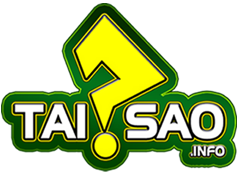Tôi là một sinh viên 19 tuổi đến từ Việt Nam. Tôi đã được làm quen với tiếng Anh khi còn rất trẻ và tôi có khả năng thực hiện bất kỳ kiểu trò chuyện nào. Tuy nhiên, một số người bạn nói tiếng Anh của tôi trên mạng không mất quá nhiều thời gian để nhận ra tôi không phải là người bản xứ. Tại sao vậy?
Làm thế nào người bản xứ có thể nhận biết tôi là người nước ngoài chỉ dựa vào tiếng Anh của tôi?
Share

It may be little things like not using native idioms, that you would pick up from living in the UK.
But, hey. That’s just a guess.
Also, I don’t think I would’ve noticed you were foreign from what you wrote, if you didn’t point it out.
Because non-native speakers use English differently as compared to native speakers. It’s… it’s as simple as that.
I can also usually tell within the first few moments of talking to somebody on the internet whether they are from a native English-speaking country or not. They’ll use slightly different phrasing. Use of idioms is also a dead giveaway.
I dunno. It’s usually patently obvious. This doesn’t make a non-native English speaker’s English bad by any stretch; just different.
I can also generally tell where native English speakers are from as well, at least in a general sense. Canadians tend to sound like Americans (even in writing) but spell more like the Brits. British persons obviously use British English and will use British colloquiums and the word ‘whilst’ often will pop up. Australians lean heavy on the word ‘mate’ a lot of the time. Americans use American spellings and sound like Americans.
And so on.
You probably have strange grammar. Pretty much every language has a different grammar style than English, as far as I know. Don’t know Malaysian, so I can’t answer that specific part. But based on your question, you have better grammar than most on the internet. So that could be it, that you’re “too perfect.” Could be an accent, too. Or idioms, those things are pretty funny.